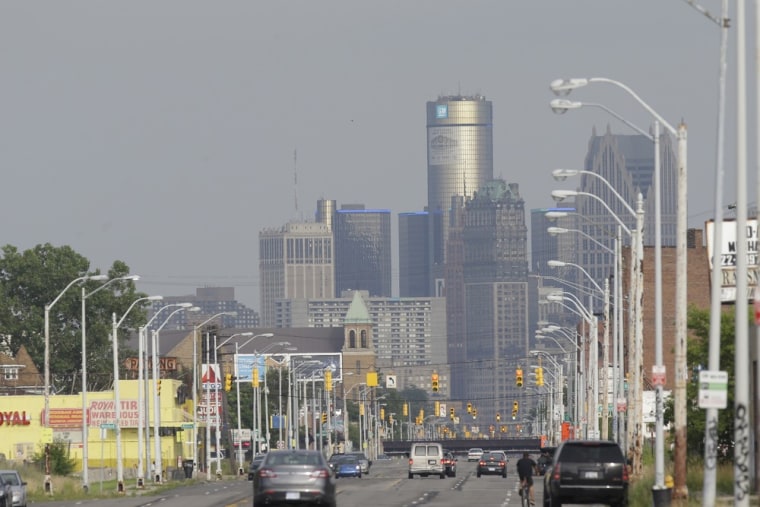Detroit aims to file a restructuring plan by the end of 2013, earlier than a date previously proposed by the federal bankruptcy judge overseeing the case, an attorney for the city said during Friday's hearing.
Detroit's proposed filing date would be much sooner than the March 1, 2014 date proposed by U.S. Bankruptcy Judge Steven Rhodes earlier this week.
"Our view is that time is our enemy," said David Heiman, an attorney with Jones Day, the law firm representing the city. "The facts are not going to change, no matter how long we wait . So we aim to file a plan by the end of the year."
Heiman also told the judge that Detroit is continuing talks with its creditors, but "significant difficulties" make a deal hard to reach.
He added that Detroit held talks with the city's unsecured creditors last week and has scheduled more for Friday and next week.
On Tuesday, Judge Rhodes proposed Oct. 23 for the start of a trial on potential objections to Detroit's eligibility to file for Chapter 9 bankruptcy.
If the court does determine the city qualifies for bankruptcy, Detroit would have until March 1, 2014 to file a reorganization plan, according to Judge Rhodes' schedule.
That timeline is more ambitious in some areas than the one proposed by Detroit's Emergency Manager Kevyn Orr after he filed the city's bankruptcy petition on July 18.
During Friday's hearing, Rhodes was expected to lay out a roadmap for the biggest Chapter 9 municipal bankruptcy filing in U.S. history. Detroit must prove it is insolvent and has negotiated in good faith with creditors owed more than $18 billion before Rhodes would allow the city to file a reorganization plan that the judge must then approve.
Friday's court session is a key step in Orr's effort to see the city emerge from the largest U.S. municipal bankruptcy filing in history by September 2014.
In a court filing on Thursday, Detroit released a list of creditors including current, former and retired workers, that filled 3,504 pages. Prominent among them are bondholders and pension funds.
A group of about 20 protesters outside the federal courthouse on Friday held signs and chanted, "hands off our pensions" and "make the banks pay."
Detroit workers, retirees and pension funds have already tried to derail the bankruptcy petition in state court on Michigan constitutional grounds. But Rhodes last week suspended their lawsuits, putting his court in full control of the case.
(Read more: If Detroit cuts pensions, will your city be next?)
But even if Rhodes' schedule is adopted, the deadlines may not be set in stone, according to Jim Spiotto, a municipal bankruptcy expert at law firm Chapman and Cutler in Chicago.
(Read more: How your city might pay for Detroit's money mess)
"If people don't agree and become contentious it takes longer," he said.
The schedules put forward by Orr and Rhodes would have Detroit moving through bankruptcy court more quickly than Stockton, California, which took nearly a year to pass through the eligibility phase alone. Detroit's debt load dwarfs that of Stockton, which listed liabilities of around $1 billion when it filed in June 2012.
On Friday, Rhodes was expected to address the court's "limited role" in a Chapter 9 bankruptcy. Unlike corporate bankruptcies under Chapter 11, a judge overseeing a municipal bankruptcy case cannot order the liquidation of assets. Nor can a judge order fee or tax hikes to satisfy debts.
(Read more: Detroit hurtles toward first bankruptcy hearing Wednesday)
